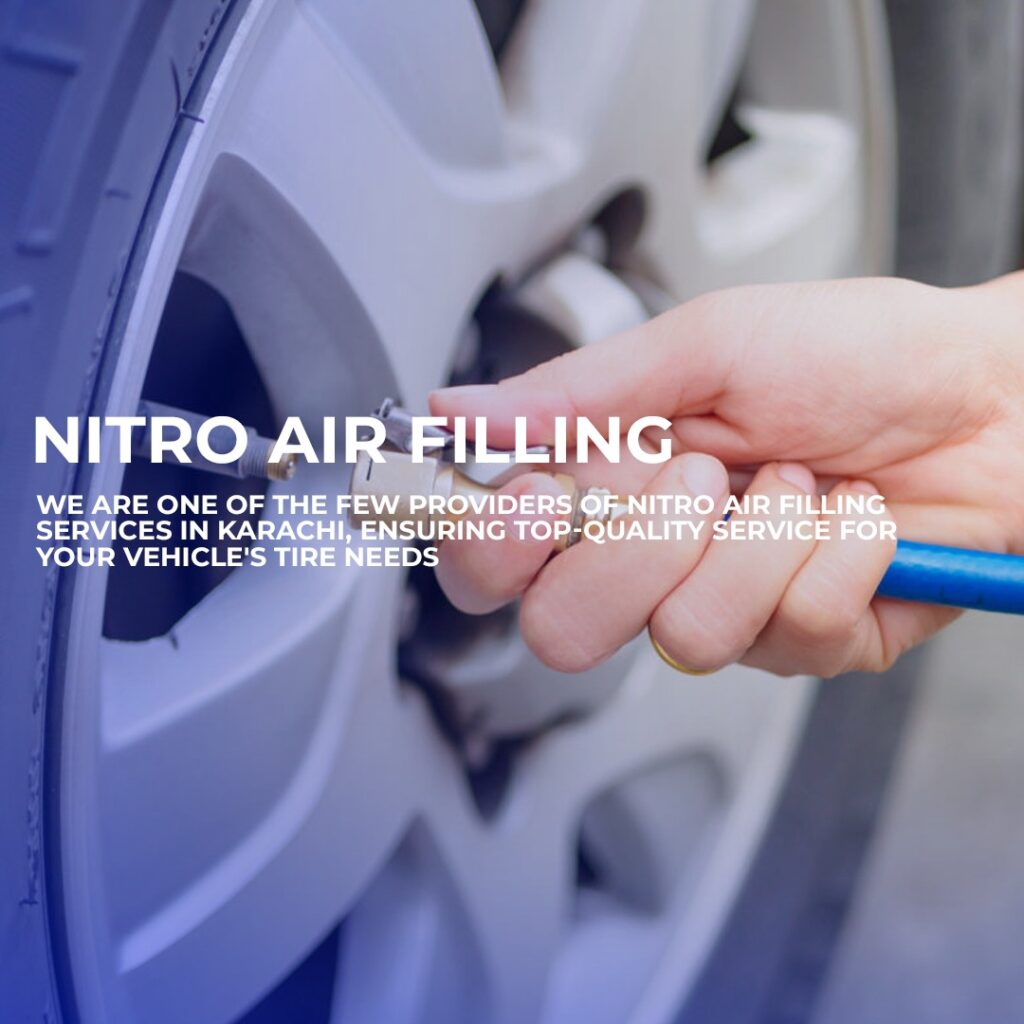Nitrogen Air Filling – For Better Tire Life & Performance
Nitrogen is no substitute for proactive, regular tire care and maintenance. However, it does come with unique advantages that make it a preferred choice for many vehicle owners.
Why Nitrogen?
Nitrogen is less likely to migrate through tire rubber than oxygen, meaning your tire pressures remain more stable for a longer time. This results in better performance, improved fuel efficiency, and increased safety.
Benefits of Nitrogen-Filled Tires
- Slower pressure loss over time
- Reduced risk of tire blowouts
- Improved fuel economy
- Enhanced handling and braking
- Increased tire life and reduced maintenance
Comparison: Nitrogen vs Regular Air
Unlike regular compressed air, nitrogen is dry and free from moisture, which reduces corrosion on the tire’s inner lining and metal parts. While air contains nearly 78% nitrogen already, pure nitrogen inflation provides more consistency in pressure and longer intervals between refills.
Is It Safe to Mix Nitrogen with Air?
Yes, it's completely safe to top off nitrogen-filled tires with regular air if nitrogen is not readily available. However, this will reduce the overall nitrogen concentration and slightly lessen the benefits.
Who Should Use Nitrogen?
Nitrogen is ideal for:
- Drivers doing long-distance or high-speed driving
- Owners of high-performance or luxury vehicles
- Fleet managers wanting better tire control and durability
- Off-road vehicles or those in extreme climates
Tips for Maintaining Nitrogen-Filled Tires
- Check tire pressure at least once every two weeks
- Do visual inspections for damage or uneven wear
- Don’t ignore warning signs like vibration or pulling
- Keep a digital nitrogen pressure gauge in your car
Note: Nitrogen inflation is not a one-time fix. Regular maintenance and inspection are still essential for tire safety and longevity.


